In the world of electrical wiring, two commonly used types of cables are armoured cables and shielded cables. Both serve essential purposes in ensuring the safety and efficiency of electrical systems, but they have distinct characteristics that make them suitable for different applications. Understanding the differences between armoured and shielded cables can help consumers make informed decisions when choosing the right cable for their specific needs. Armoured cables, also known as metal-clad cables (MC cables) or armored sheathed cables, are cables protected by a layer of metal for enhanced mechanical protection. The metal armor encasing the cables provides durability and resistance to physical damage, making them ideal for installations in harsh environments where cables may be exposed to mechanical stress, moisture, or other hazards. Armoured cables are commonly used in outdoor installations, underground wiring, and industrial applications where protection against external elements is essential.
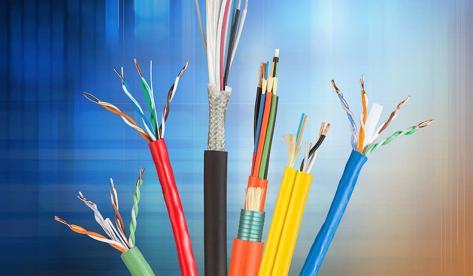
.
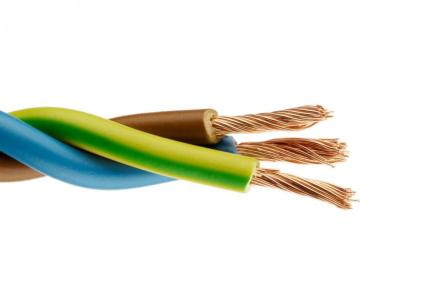 One of the key benefits of armoured cables is their robust construction, which allows them to withstand extreme conditions and rough handling. The metal armor provides a shield that protects the internal components of the cable from damage, ensuring long-term reliability and safety. Armoured cables are also resistant to rodents and pests, making them a preferred choice for installations in areas prone to infestation. In addition to their physical protection, armoured cables offer excellent electrical insulation properties. The metal armor acts as a barrier against electromagnetic interference (EMI) and radio frequency interference (RFI), shielding the internal conductors from external disturbances that can affect signal quality and lead to electrical malfunctions. This shielding capability makes armoured cables particularly suitable for high-power applications and critical systems where signal integrity is essential. On the other hand, shielded cables are designed with an additional layer of shielding material, such as aluminum foil or braided copper, to protect against electromagnetic interference and improve signal quality. Shielded cables are commonly used in applications where noise suppression and signal clarity are paramount, such as data transmission, audiovisual systems, and telecommunications. The shielding in shielded cables helps to reduce electromagnetic emissions and susceptibility, minimizing the risk of signal degradation or data loss due to external interference. By providing a barrier against electromagnetic fields, shielded cables create a stable electrical environment for transmitting signals with minimal distortion, making them ideal for precision applications that require high data integrity and reliable performance. In terms of installation and flexibility, shielded cables offer advantages in situations where space is limited or where cables need to be routed in close proximity to other electrical or electronic equipment. The compact design of shielded cables and their ability to bend and flex easily make them suitable for applications that require tight bends or where cable management is a concern. When considering whether to use armoured cables or shielded cables, it is important to evaluate the specific requirements of the installation and the environmental conditions in which the cables will be used. Armoured cables provide superior mechanical protection and durability, making them ideal for outdoor, industrial, and high-risk environments where physical damage is a concern. Shielded cables, on the other hand, excel in reducing electromagnetic interference and improving signal quality, making them suitable for applications that demand high data integrity and noise immunity.
One of the key benefits of armoured cables is their robust construction, which allows them to withstand extreme conditions and rough handling. The metal armor provides a shield that protects the internal components of the cable from damage, ensuring long-term reliability and safety. Armoured cables are also resistant to rodents and pests, making them a preferred choice for installations in areas prone to infestation. In addition to their physical protection, armoured cables offer excellent electrical insulation properties. The metal armor acts as a barrier against electromagnetic interference (EMI) and radio frequency interference (RFI), shielding the internal conductors from external disturbances that can affect signal quality and lead to electrical malfunctions. This shielding capability makes armoured cables particularly suitable for high-power applications and critical systems where signal integrity is essential. On the other hand, shielded cables are designed with an additional layer of shielding material, such as aluminum foil or braided copper, to protect against electromagnetic interference and improve signal quality. Shielded cables are commonly used in applications where noise suppression and signal clarity are paramount, such as data transmission, audiovisual systems, and telecommunications. The shielding in shielded cables helps to reduce electromagnetic emissions and susceptibility, minimizing the risk of signal degradation or data loss due to external interference. By providing a barrier against electromagnetic fields, shielded cables create a stable electrical environment for transmitting signals with minimal distortion, making them ideal for precision applications that require high data integrity and reliable performance. In terms of installation and flexibility, shielded cables offer advantages in situations where space is limited or where cables need to be routed in close proximity to other electrical or electronic equipment. The compact design of shielded cables and their ability to bend and flex easily make them suitable for applications that require tight bends or where cable management is a concern. When considering whether to use armoured cables or shielded cables, it is important to evaluate the specific requirements of the installation and the environmental conditions in which the cables will be used. Armoured cables provide superior mechanical protection and durability, making them ideal for outdoor, industrial, and high-risk environments where physical damage is a concern. Shielded cables, on the other hand, excel in reducing electromagnetic interference and improving signal quality, making them suitable for applications that demand high data integrity and noise immunity.
..
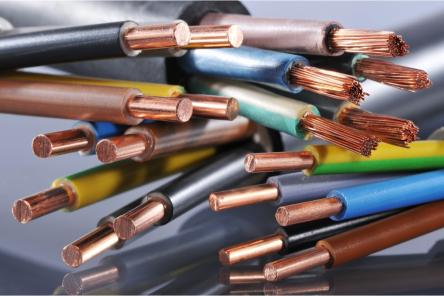 In some cases, a combination of armoured and shielded cables may be necessary to meet the demands of a complex installation. By understanding the unique strengths and capabilities of each type of cable, consumers can select the right cable solutions to ensure the reliability, safety, and performance of their electrical systems. In conclusion, armoured cables and shielded cables are essential components of modern electrical systems, each offering distinct advantages in terms of protection, shielding, and performance. Whether choosing armoured cables for their robust construction and mechanical strength or shielded cables for their noise suppression and signal clarity, consumers can rest assured that they are investing in reliable and efficient cable solutions that meet their specific needs. By selecting the right cable for the job, customers can ensure the success of their electrical installations and enjoy the peace of mind that comes with knowing their systems are well-protected and optimized for optimal performance. In today’s rapidly evolving technological landscape, the demand for reliable and efficient electrical systems is greater than ever. Whether it’s powering critical infrastructure, transmitting data across networks, or supporting essential services, the importance of choosing the right cables cannot be overstated. Armoured cables and shielded cables play a vital role in ensuring that electrical installations operate safely, effectively, and with minimal interference. For industries such as oil and gas, mining, construction, and manufacturing, armoured cables are the backbone of the electrical infrastructure. These rugged cables are designed to withstand the harshest environments, including exposure to moisture, chemicals, extreme temperatures, and physical damage. With their robust construction and protective metal armor, armoured cables provide a level of durability and resilience that is unmatched by other types of cables. In outdoor installations, such as lighting, power distribution, and security systems, armoured cables are the go-to choice for contractors and engineers. The metal armor not only shields the internal components from moisture, UV radiation, and corrosion but also protects against accidental damage from environmental factors or human activity. This added layer of protection gives peace of mind to property owners and operators, knowing that their electrical systems are secure and reliable, even in challenging conditions. In industrial settings where machinery, equipment, and automation systems rely on consistent power supply, armoured cables are indispensable.
In some cases, a combination of armoured and shielded cables may be necessary to meet the demands of a complex installation. By understanding the unique strengths and capabilities of each type of cable, consumers can select the right cable solutions to ensure the reliability, safety, and performance of their electrical systems. In conclusion, armoured cables and shielded cables are essential components of modern electrical systems, each offering distinct advantages in terms of protection, shielding, and performance. Whether choosing armoured cables for their robust construction and mechanical strength or shielded cables for their noise suppression and signal clarity, consumers can rest assured that they are investing in reliable and efficient cable solutions that meet their specific needs. By selecting the right cable for the job, customers can ensure the success of their electrical installations and enjoy the peace of mind that comes with knowing their systems are well-protected and optimized for optimal performance. In today’s rapidly evolving technological landscape, the demand for reliable and efficient electrical systems is greater than ever. Whether it’s powering critical infrastructure, transmitting data across networks, or supporting essential services, the importance of choosing the right cables cannot be overstated. Armoured cables and shielded cables play a vital role in ensuring that electrical installations operate safely, effectively, and with minimal interference. For industries such as oil and gas, mining, construction, and manufacturing, armoured cables are the backbone of the electrical infrastructure. These rugged cables are designed to withstand the harshest environments, including exposure to moisture, chemicals, extreme temperatures, and physical damage. With their robust construction and protective metal armor, armoured cables provide a level of durability and resilience that is unmatched by other types of cables. In outdoor installations, such as lighting, power distribution, and security systems, armoured cables are the go-to choice for contractors and engineers. The metal armor not only shields the internal components from moisture, UV radiation, and corrosion but also protects against accidental damage from environmental factors or human activity. This added layer of protection gives peace of mind to property owners and operators, knowing that their electrical systems are secure and reliable, even in challenging conditions. In industrial settings where machinery, equipment, and automation systems rely on consistent power supply, armoured cables are indispensable.
…
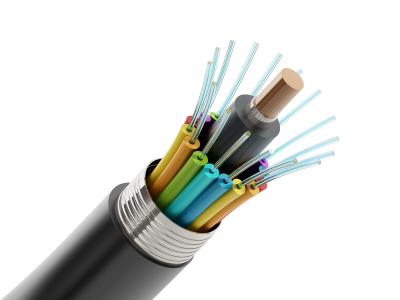 These cables are designed to handle high currents, provide efficient power transmission, and minimize the risk of disruptions or downtime due to cable failures. Whether it’s powering motors, pumps, control panels, or other industrial equipment, armoured cables deliver the performance and reliability that industrial applications demand. On the other hand, shielded cables excel in applications where signal integrity and data transmission are critical. In the realm of telecommunications, networking, and audiovisual systems, shielded cables are essential for maintaining clear communication, minimizing interference, and ensuring data accuracy. The shielding in shielded cables acts as a barrier against electromagnetic noise and crosstalk, allowing signals to travel smoothly and without distortion. For businesses and organizations that rely on high-speed data transmission, such as data centers, telecommunication providers, and broadcasting studios, shielded cables are the lifeline that ensures optimal performance and minimal downtime. By investing in quality shielded cables, these industries can safeguard their data, maintain network reliability, and deliver seamless connectivity to their customers and users. The versatility of shielded cables also extends to residential and commercial applications, where electronic devices, security systems, and audiovisual equipment require interference-free connections. In homes, offices, and retail spaces, shielded cables help prevent electromagnetic interference from causing disruptions in audio, video, or data signals, creating a more stable and reliable environment for technology-driven activities. In conclusion, both armoured cables and shielded cables offer unique advantages and applications in the realm of electrical wiring and installations. While armoured cables provide robust mechanical protection and durability, shielded cables excel in reducing electromagnetic interference and improving signal quality. By understanding the distinct characteristics and benefits of each type of cable, consumers can make informed decisions when choosing the right cable solutions for their specific needs. Whether it’s safeguarding critical infrastructure in harsh environments with armoured cables or ensuring reliable data transmission in noise-sensitive applications with shielded cables, the choice of cable can make a significant difference in the safety, performance, and longevity of electrical systems. By selecting the appropriate cables for the job, consumers can build resilient, efficient, and high-performing electrical installations that meet the demands of today’s interconnected world.
These cables are designed to handle high currents, provide efficient power transmission, and minimize the risk of disruptions or downtime due to cable failures. Whether it’s powering motors, pumps, control panels, or other industrial equipment, armoured cables deliver the performance and reliability that industrial applications demand. On the other hand, shielded cables excel in applications where signal integrity and data transmission are critical. In the realm of telecommunications, networking, and audiovisual systems, shielded cables are essential for maintaining clear communication, minimizing interference, and ensuring data accuracy. The shielding in shielded cables acts as a barrier against electromagnetic noise and crosstalk, allowing signals to travel smoothly and without distortion. For businesses and organizations that rely on high-speed data transmission, such as data centers, telecommunication providers, and broadcasting studios, shielded cables are the lifeline that ensures optimal performance and minimal downtime. By investing in quality shielded cables, these industries can safeguard their data, maintain network reliability, and deliver seamless connectivity to their customers and users. The versatility of shielded cables also extends to residential and commercial applications, where electronic devices, security systems, and audiovisual equipment require interference-free connections. In homes, offices, and retail spaces, shielded cables help prevent electromagnetic interference from causing disruptions in audio, video, or data signals, creating a more stable and reliable environment for technology-driven activities. In conclusion, both armoured cables and shielded cables offer unique advantages and applications in the realm of electrical wiring and installations. While armoured cables provide robust mechanical protection and durability, shielded cables excel in reducing electromagnetic interference and improving signal quality. By understanding the distinct characteristics and benefits of each type of cable, consumers can make informed decisions when choosing the right cable solutions for their specific needs. Whether it’s safeguarding critical infrastructure in harsh environments with armoured cables or ensuring reliable data transmission in noise-sensitive applications with shielded cables, the choice of cable can make a significant difference in the safety, performance, and longevity of electrical systems. By selecting the appropriate cables for the job, consumers can build resilient, efficient, and high-performing electrical installations that meet the demands of today’s interconnected world.
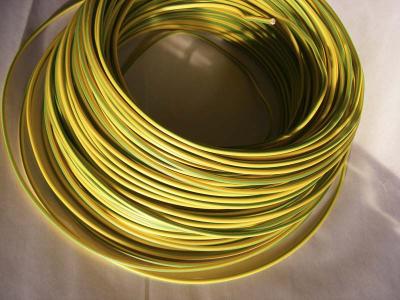
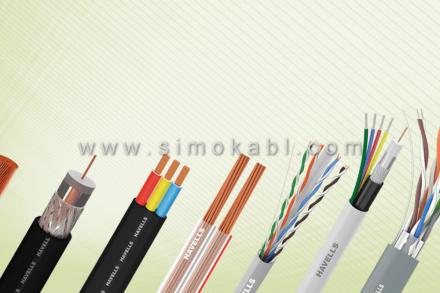
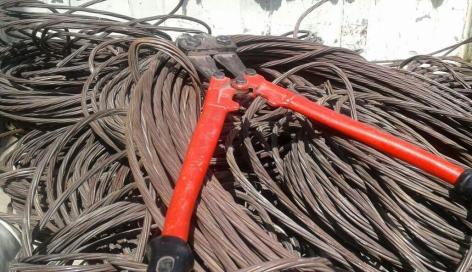
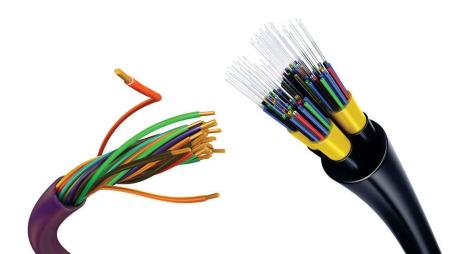
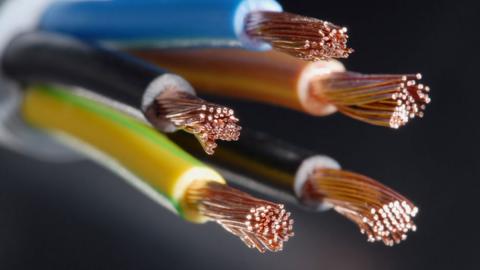
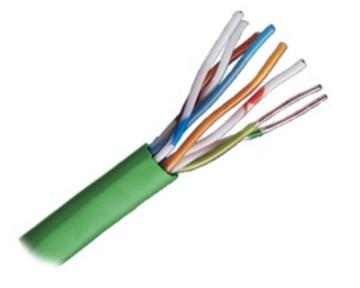
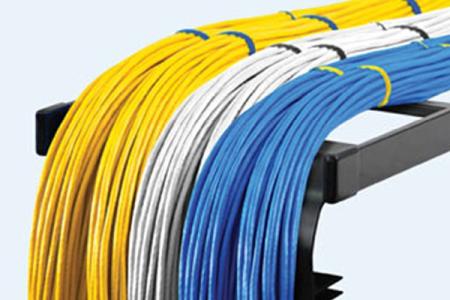
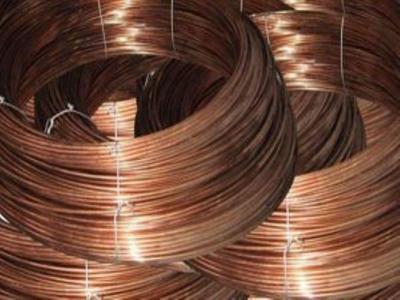
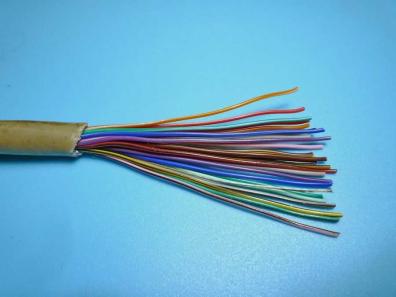
Your comment submitted.